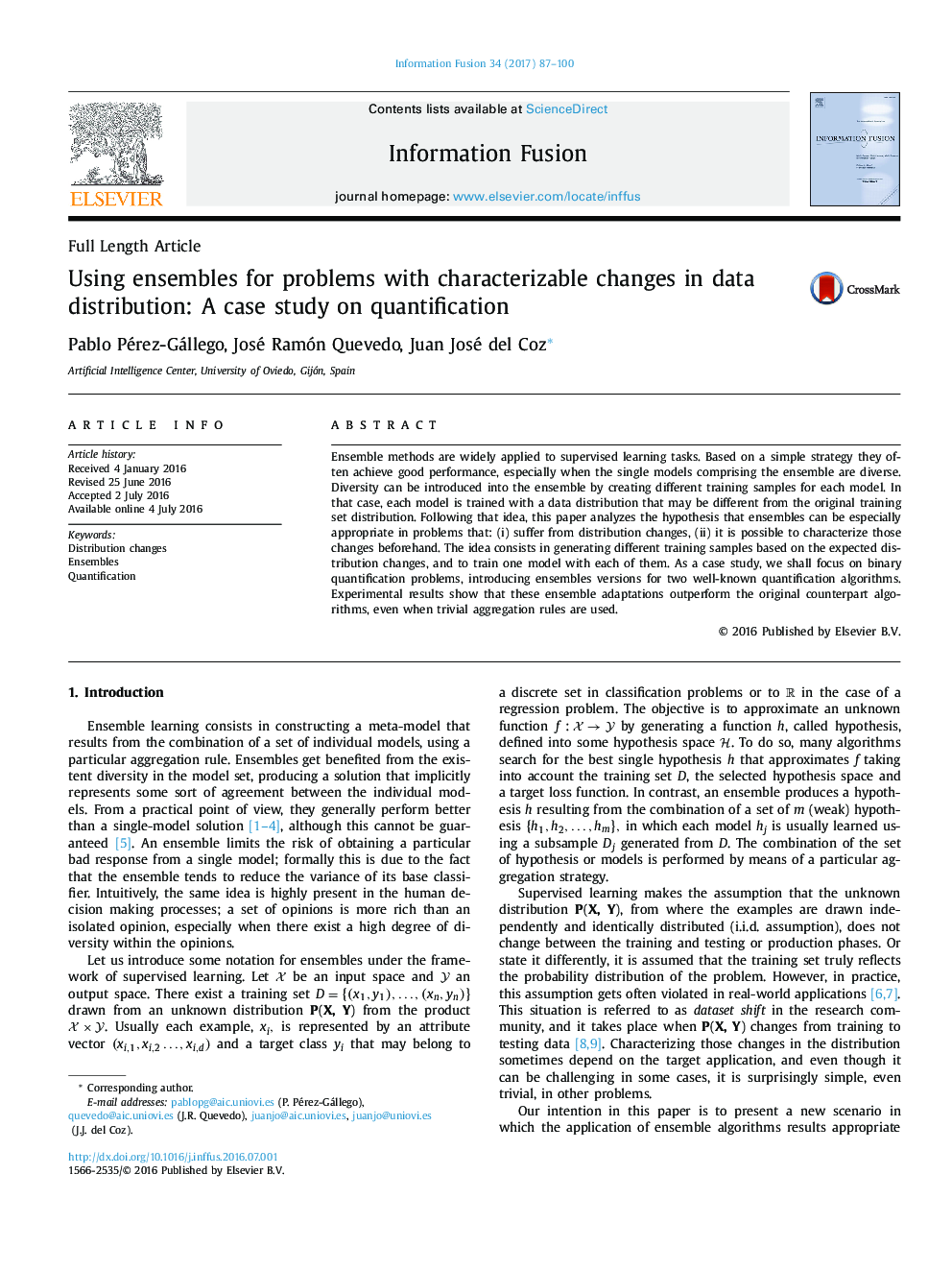| کد مقاله | کد نشریه | سال انتشار | مقاله انگلیسی | نسخه تمام متن |
|---|---|---|---|---|
| 528330 | 869555 | 2017 | 14 صفحه PDF | دانلود رایگان |
• Our hypothesis: ensembles are well suited for problems with distribution changes.
• If those changes are characterizable, ensembles can be designed to tackle them.
• Idea: to generate different samples based on the expected distribution changes.
• Case study: we present ensembles versions of two binary quantification algorithms.
• Ensembles outperform original counterpart algorithms using trivial aggregation rules.
Ensemble methods are widely applied to supervised learning tasks. Based on a simple strategy they often achieve good performance, especially when the single models comprising the ensemble are diverse. Diversity can be introduced into the ensemble by creating different training samples for each model. In that case, each model is trained with a data distribution that may be different from the original training set distribution. Following that idea, this paper analyzes the hypothesis that ensembles can be especially appropriate in problems that: (i) suffer from distribution changes, (ii) it is possible to characterize those changes beforehand. The idea consists in generating different training samples based on the expected distribution changes, and to train one model with each of them. As a case study, we shall focus on binary quantification problems, introducing ensembles versions for two well-known quantification algorithms. Experimental results show that these ensemble adaptations outperform the original counterpart algorithms, even when trivial aggregation rules are used.
Figure optionsDownload as PowerPoint slide
Journal: Information Fusion - Volume 34, March 2017, Pages 87–100
